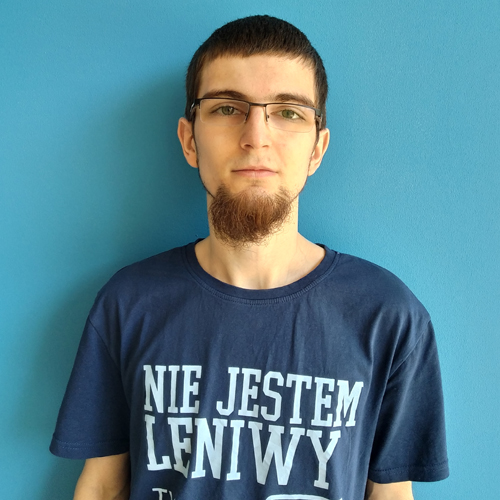CERN | My story

photo from the private archive
KRZYSZTOF GRZANKA, MSc
The working atmosphere at CERN is completely different from that at the university, and the research center itself makes an incredible impression. During the first few days of your stay, finding your way around may be a bit difficult. The numbering of buildings can surprise you, and there are a lot of them.
|
CERN MY STORY
|
Already during my high school education, and later during my undergraduate studies, CERN was for me a fascinating, almost mythical place, where science has no borders, knows no divisions, and scientists from different corners of the world cooperate without paying attention to different skin color, accent, origin, gender, or “external” conflicts. The goal is simple – Science and development. As one of the very few scientific institutions, it is known not only to physics enthusiasts but practically to everyone. At that time, I didn’t think that I would ever have the opportunity to cooperate more or less directly with CERN. After all, there are so many excellent universities around the world and so many great scientists – why should I have this privilege? At that time I was not yet aware of the cooperation between the University of Silesia and CERN and how it really works. The first, still unconscious, step towards close cooperation with CERN was the decision to write my BSc thesis under the supervision of Professor Janusz Gluza. I found out that my thesis supervisor cooperates with CERN, and my project will also be related to this cooperation. I was to conduct a preliminary estimation of the size of the task facing theoretical physicists in view of future lepton colliders such as the planned FCC-ee. The task was to generate and classify the so-called Feynman diagrams for the processes under consideration, corresponding to specific, very complicated integrals that would then have to be calculated. I did not expect that the results of my work would be published in CERN articles and reports on the planned FCC experiment. Only then did I realize how important and close our cooperation with CERN is. Still, I did not think that I would ever have the opportunity to go to CERN and experience the atmosphere there. My MSc thesis was a continuation of a project started during my Bachelor’s degree, but this time the main goal was to understand and learn the numerical methods used to calculate previously generated integrals and create scripts that will be used to partially automate these calculations. I am currently finishing my second year of studies at the Doctoral School at the University of Silesia, and my dissertation project focuses on calculating Feynman integrals for the decay of the Z boson. My research is conducted in Prof. Gluza’s research group “Theory and Phenomenology of Particle Physics”. My first time at CERN was in October 2019. It was a two-day workshop on software for the FCC project. Since then, I have been to CERN three more times. Two of these visits, as part of the University of Silesia-CERN agreement, lasted two weeks each and were dedicated to specific cooperation with scientists working at CERN. I remember all these trips very well. The working atmosphere at CERN is completely different from that at the university, and the research center itself makes an incredible impression. During the first few days of your stay, finding your way around may be a bit difficult. The numbering of buildings can surprise you, and there are a lot of them. However, after a few days, you start to know where each building is located and what is in it. The staff is very friendly and always willing to help, and the area around the center is peaceful and full of breathtaking views. If the pandemic situation permits, I am looking forward to another two-week trip to CERN in September. I very much hope that it will all work out well. |
|





